October is defined in Webster’s Dictionary as “31 days of horror.” Don’t bother looking it up, it’s true. Most people take that to mean highlighting one horror movie a day, but here at FSR, we’ve taken that up a spooky notch or nine by celebrating each day with a top ten list. This article about the best apocalypse horror movies is part of our ongoing series 31 Days of Horror Lists.
Now is the perfect time to be writing about apocalyptic horror movies because at this point we’re all just counting down the days, right? The apocalypse is coming and we all know it. Or maybe it’s already here? The entire west coast of the United States was or is burning. That coupled with 1995’s Cruel Jaws getting a legitimate Blu-ray release is a surefire sign that the end is near. Fortunately, we can turn to movies to help us get through this tricky situation. The following ten titles will serve as an action plan of sorts to help us conquer the impending doomsday. Watch these movies and you’ll be prepared to take on anything. Or at the very least, you’ll have a clear understanding of just how horrible your death is going to be. Either way, it’s sure to be a good time.
Be warned, though: if your apocalypse involves a zombie outbreak, you’re going to have to look elsewhere. This list will not help you. We’re planning for an apocalypse that includes biblical, atomic, and out-of-this-world scenarios. And also ants for some reason. I did not vote for ants. But we’re nothing if not a democracy here at FSR, and so ants made the cut. Stupid ants.
Keep reading for a look at the best apocalyptic horror movies as voted on by Anna Swanson, Brad Gullickson, Meg Shields, Jacob Trussell, Kieran Fisher, Rob Hunter, Valerie Ettenhofer, and myself.
10. Sunshine (2007)

28 Days Later is arguably Danny Boyle’s most acclaimed contribution to apocalypse cinema, but Sunshine deserves as much praise. In the movie, the sun is dying and it’s up to a team of astronauts to travel through space and fix the problem. Unfortunately, a series of unexpected incidents occur that throw their mission — and the future of humankind — into disarray. As scripted by Alex Garland, Boyle’s movie was inspired by topics such as global warming and the heat death of the universe. Those are real issues that experts continue to debate to this day. Sunshine overlooks some of the facts in favor of chills and thrills, but even though the scientific accuracy is iffy, the movie is still an effective warning about the bleak future that lies ahead for our planet. (Kieran Fisher)
9. Phase IV (1974)
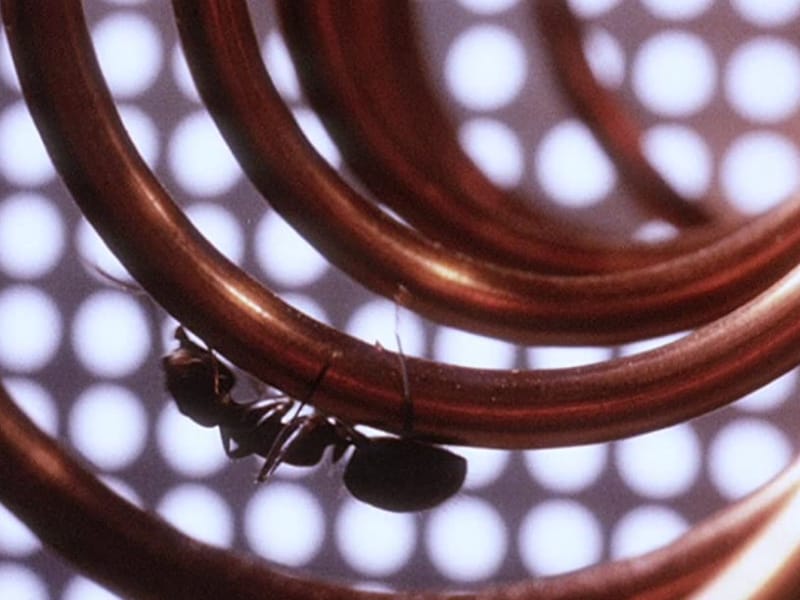
Ants. Why did it have to be ants? While Saul Bass is best known for his legendary title sequences, in 1974, the graphic designer directed his only feature-length film. Quiet, haunting, and criminally overlooked, Phase IV burrows snugly among its ’70 sci-fi peers with a vision of the apocalypse that sees humanity outwitted, outmatched, and undone by a formidable foe: ants. Propelled into rapid evolution by an unprecedented cosmic event, an ant colony in the Arizona desert develops a terrifying hive mind and sets about realizing its mysterious objective. Two over-confident scientists are sent to investigate and quickly fall under siege; their gadgets, rationality, and weapons are unable to contend with the mobilized tenacity of their enemy.
Ultimately, all of Phase IV’s genuine macabre moments pale in comparison to the more sinister suggestion at the heart of the film: that our heroes are just the first and easily surmounted obstacle in the ants’ quest to take charge of the planet. That if men of science aware of the enemy’s power are unable to hold their own: all is lost. Without showing us how it all shakes down, Bass sets the stage for a desperate conclusion. It is a chilling prophecy, out of the desert, powdered in a toxic yellow haze, and steeped in a creepy-crawly sense of dread. (Meg Shields)
8. Miracle Mile (1988)
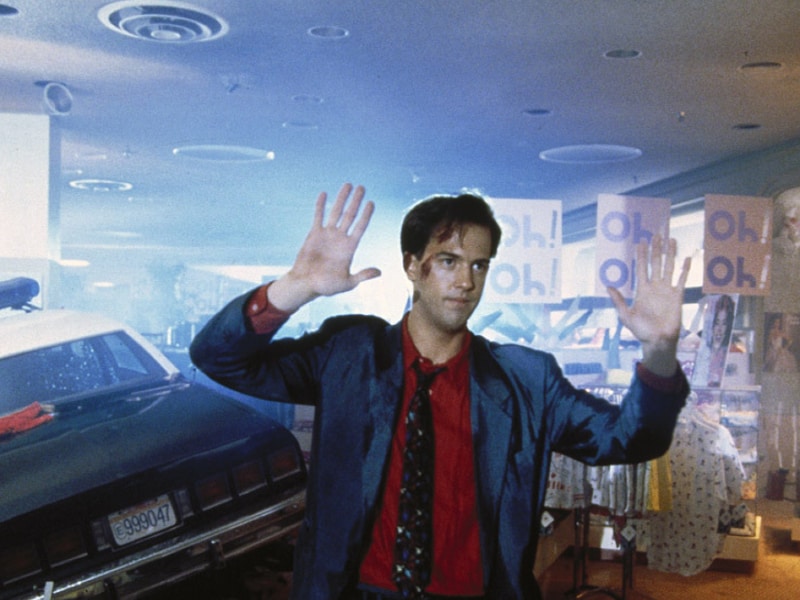
Love is impossible, and the pursuit of it can drive a person to all manner of erratic behavior. When a miracle happens, and love is granted, you will do whatever you can to hold onto it. At the same time, effort does not matter. You are a mortal. You will die. Love found is love lost. Welcome to Miracle Mile. Steve De Jarnatt‘s apocalyptic thriller begins with two dreamers discovering bliss in each other, only to have it ripped from them when armageddon reveals itself on the horizon. Taking place in real-time, Miracle Mile races to a climax where love should reign supreme, but these filmmakers dare not stoop to such Hallmark capitalist blather. Like all forms of love, this movie hurts, friends. Enjoy it while it lasts, but all things are born to die. (Brad Gullickson)
7. In the Mouth of Madness (1994)
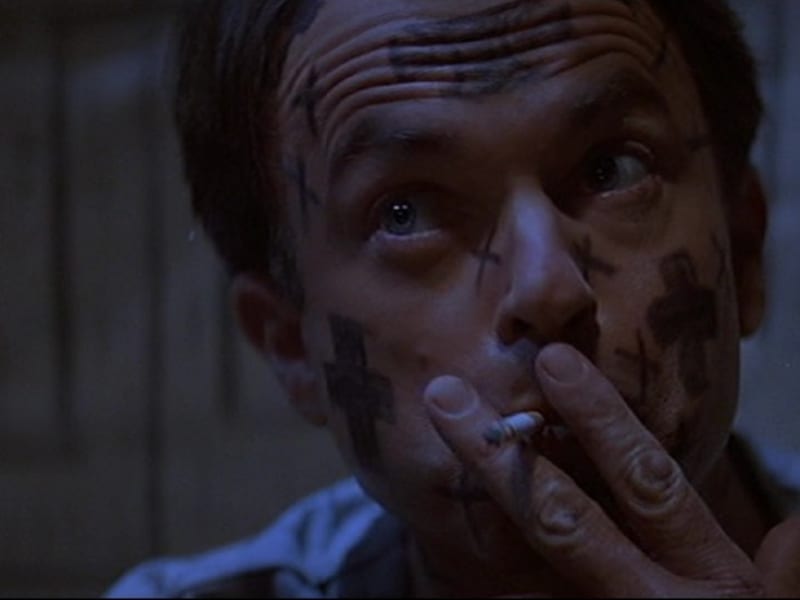
Is the best H.P. Lovecraft adaptation in cinema a film that isn’t directly based on Lovecraft’s work? A case can certainly be made for John Carpenter and the final entry in his unofficial “Apocalypse Trilogy.” Sam Neill stars as John Trent, an insurance investigator now living out his days in a psychiatric hospital. The film plays out with Trent sharing his story with the visiting Dr. Wrenn (David Warner), explaining how he ended up in the loony bin. What unfolds is a story about the world being overrun by unspeakable dread, and the line between fiction and reality has become heavily blurred. When the final credits roll, the audience is left to question what is real and what isn’t, with the only reasonable solution to laugh hysterically because this world is screwed. (Chris Coffel)
6. Prince of Darkness (1987)
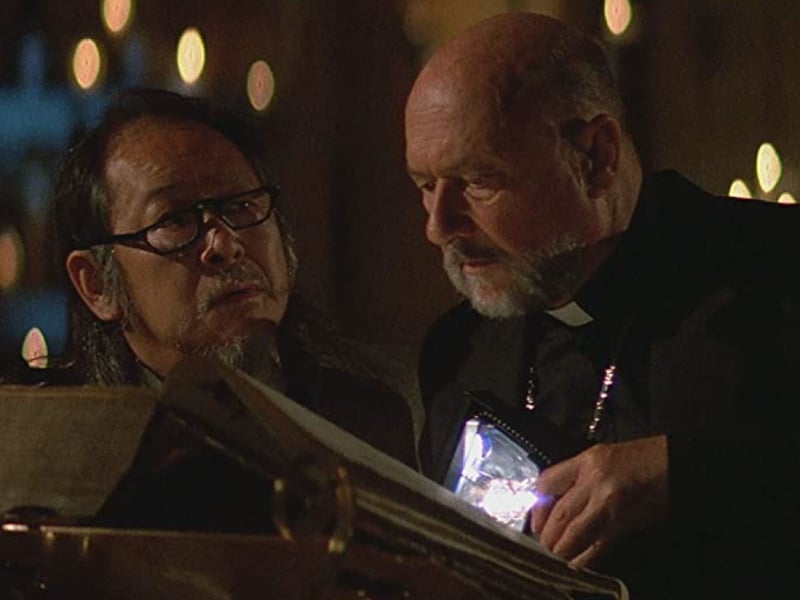
The idea of a film in which the antagonist is green goop that has been stored in a canister hidden in the basement of a church seems pretty silly, right? Why should we fear a green lava lamp? Oh, because it’s allegedly Satan? Who cares, it’s slime! But then that’s the brilliance of John Carpenter. This surface-level silly premise is arguably his most sinister film. There’s an ancient evil lurking, awaiting the opportunity to rise and destroy humanity. And the way Carpenter tells it, there’s no escaping this evil, no matter what you do. (Chris Coffel)
5. Pulse (2001)

Horror movies have touched on the supernatural, the internet, and the end of the world before, but it took the quiet genius of Kiyoshi Kurosawa‘s Pulse (a.k.a. Kairo) to bring the ideas together in gloriously effective collaboration. Ghosts are returning to the world of the living, and they’re doing so via the World Wide Web. Their targets are the lonely and sad among us, those who often while away their days online or in dark rooms, and the visions the ghosts bring these people only adds to the dead. Pulse is an intimate, methodical tale of terror and loss that grows and spreads to threaten neighborhoods, cities, and eventually the world in the form of a bleak apocalypse.
George Romero’s Dawn of the Dead stated that when there’s no more room in hell, the dead will walk the earth — but Kurosawa’s film suggests that they’ll seep into our psyches instead, reminding us of just how brutally alone we actually are, and then welcome us as dread and depression lead us to slip our mortal coils. This is bleak horror managed without torture or violation. After all, who needs a zombie to eat our flesh when we’re so goddamn good at digesting our own internal misery? (Rob Hunter)
4. Take Shelter (2011)
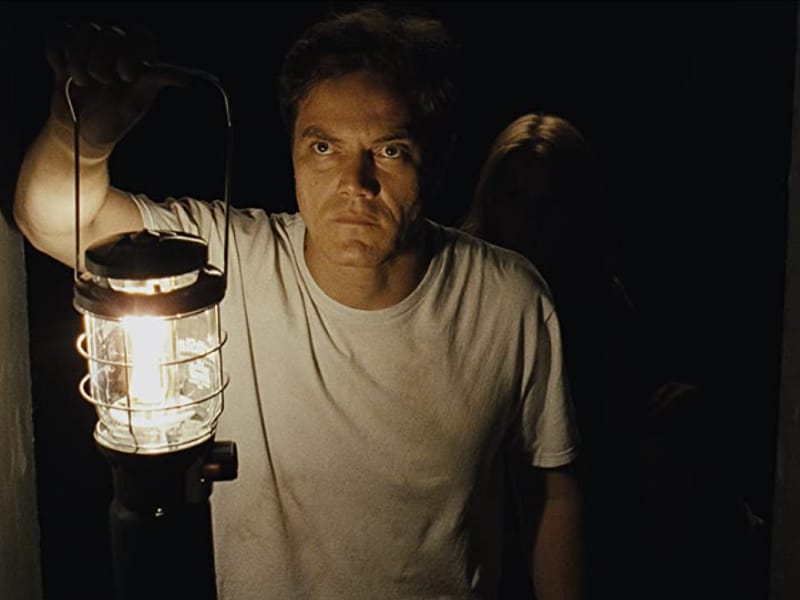
When we think of the apocalypse, we tend to think big, but sometimes the most devastating apocalypses are the personal ones. If the world were ending, but you were the only one who noticed, how would you feel? Jeff Nichols’ slow-burn psychological thriller asks and answers that question in a beautiful, devastating fashion. Michael Shannon plays an Ohio man who tries to protect his wife (played by Jessica Chastain) and disabled daughter while hiding his visions of doom — swarms of dark birds, oil rain, dangerous people — from them. An enigmatic watch with an eerie thunderbolt of an ending, Take Shelter is both a fantastic apocalypse movie and one of the most authentic portraits of anxiety and mental illness ever put on screen. (Valerie Ettenhofer)
3. Children of Men (2006)
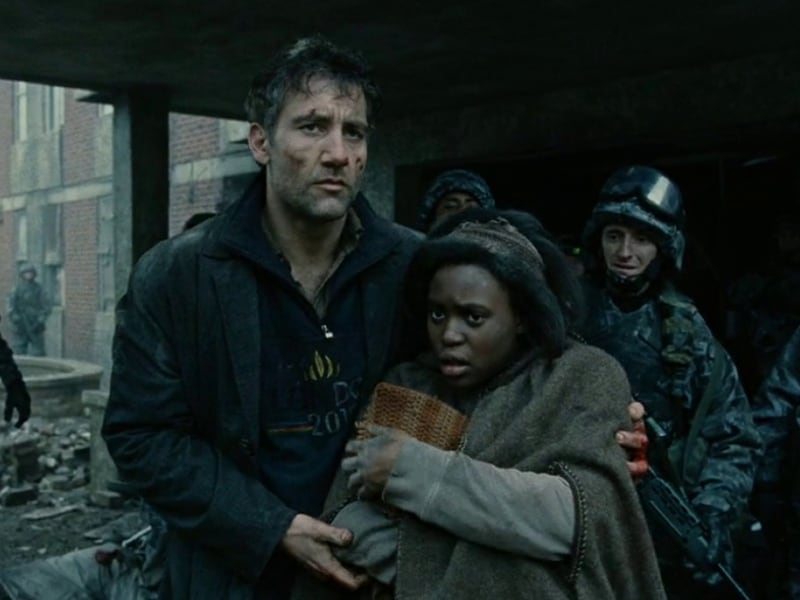
The Mayan calendar wasn’t right, the antichrist doesn’t come to earth, and zombies don’t rise up, but there is still an apocalypse event at the core of Alfonso Cuarón’s Children of Men. It’s been twenty years since the last newborn child, and that has caused upheaval to the quality of life across the globe. Clive Owen’s Julian is kidnapped and forced by a political activist to help transport Kee (Clare-Hope Ashitey), the first pregnant woman in decades, out of a war-ravaged United Kingdom. The story, very loosely based on a novel of the same name, is thrilling, but it becomes a work of art through Cuarón’s incredible long takes that lets the audience really sit with his large action set pieces. You’d think since overpopulation is a major factor in global climate change that fewer people on Earth would ultimately help life go on, but as we all know, society – and its deep love for xenophobia and violence – doesn’t work that way. In that regard, over a decade after its release, how different is our modern world from the events of Children of Men? Unfortunately after 2020, not very different at all. (Jacob Trussell)
2. Invasion of the Body Snatchers (1978)
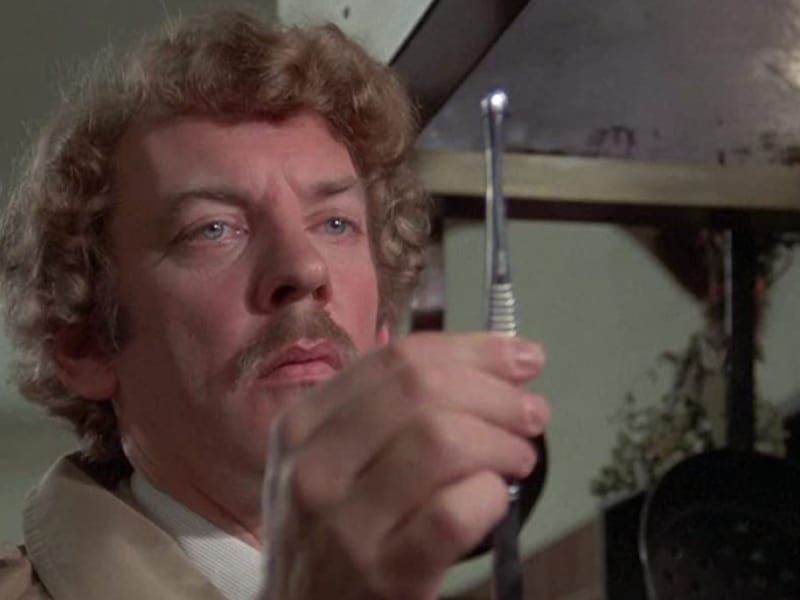
The apocalypse starts small. It’s the little things, the stuff you’d barely notice, the minor changes in habit and personality that first only raise an eyebrow. But before long, they raise the alarm and inform us that a character has been overtaken by another being quicker than you can say “Donald Sutherland’s mustache”. Philip Kaufman’s groundbreaking vision of the end of days is one of the most genuinely frightening films ever made, with paranoia baked into every frame and suspense that holds until the very last shot. This is a movie about how terror and destruction worm their way in; first too slowly to be detected and then faster than ever could have been anticipated. (Anna Swanson)
1. The Thing (1982)
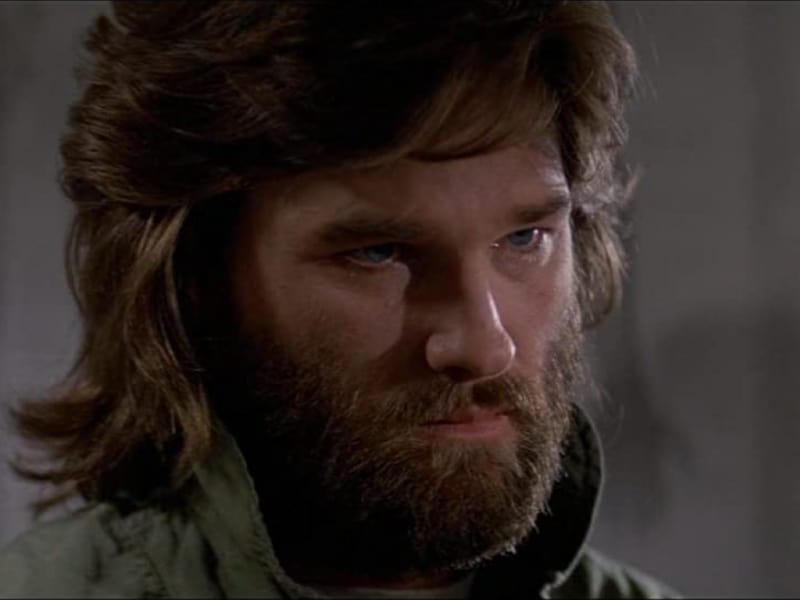
A research station in Antarctica is invaded by a parasitic shapeshifting alien. Already struggling with the cold isolation, the researchers stationed at this facility are forced to deal with panic and paranoia as it becomes increasingly difficult to know if the person you’re talking to is who they appear to be. John Carpenter‘s masterpiece is a testosterone-filled thrill ride that features some incredible performances, but man, it’s depressing as hell. That’s assuming the idea of the world slowly being overtaken by this parasite that will either kill everyone or cause everyone to kill each other is something that bums you out. Perhaps you’re someone just waiting for the day to offer up your body as a host for an alien creature. In that case, this is the apocalypse for you. (Chris Coffel)
0 comments:
Post a Comment